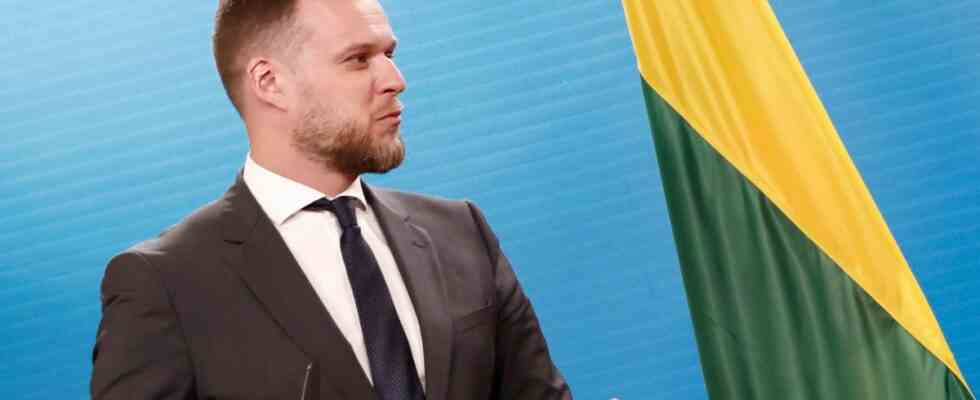The EU has passed eight packages of sanctions against Russia since the attack on Ukraine – each time all 27 member countries voted unanimously in favor of the sanctions. But now the united front is crumbling. While some EU states are vehemently calling for a ninth round of sanctions, other governments are arguing that the Union has more or less reached the end of its potential. Because of the many exceptions for individual states, the last two packages were “as full of holes as Emmental cheese,” says a diplomat. no improvement is to be expected.
However, this pessimistic diagnosis is met with strong opposition from some EU governments. Poland and the three Baltic states – Estonia, Latvia and Lithuania – but also Finland and Ireland belong to the group of countries that advocate further sanctions that are as tough as possible. “There are those who say that we have already imposed sanctions on everything important, there is nothing left,” said Lithuanian Foreign Minister Gabrielius Landsbergis on Monday ahead of a meeting with his EU colleagues in Brussels. “But I reject that.”
Estonian Foreign Minister Urmas Reinsalu made a similar statement on Monday. There is still room for new sanctions, he said. For example, the EU could classify the notorious Russian mercenary company Wagner Group, which has sent fighters to Ukraine, as a terrorist organization. This also applies to all Moscow-loyal militias fighting in Ukraine. “These are all proxy terrorist organizations,” said Reinsalu.
Belgium opposes import ban on diamonds
A few weeks ago, Lithuania and Estonia, along with other countries, submitted proposals for a ninth package of sanctions. Among other things, this includes an import ban on diamonds from Russia – a punitive measure that has always failed due to Belgian resistance. The center of the European diamond industry is in Antwerp, where tens of millions are traded with Russian gemstones.
In addition, Hungary – the most openly pro-Russian country in Eastern Europe – is reluctant to significantly tighten energy sanctions. Because of the objection from Budapest, for example, all attempts to ban cooperation with Russia on civilian nuclear power have failed. The fact that a sanctions target as obvious as Gazprombank, one of Russia’s largest financial institutions, has not yet been sanctioned because of Hungarian resistance is “actually quite shocking,” says a diplomat.
Given the disagreements among EU members, diplomats in Brussels are not expecting too much about an eventual ninth package of sanctions. “Something like strategic fatigue is slowly spreading – more and more countries want to negotiate exceptions to the sanctions for themselves,” complains a diplomat from a country that advocates tougher penalties. “It’s very disappointing. Some people might think that eventually we can get back to normal with Russia. But that’s a very wrong idea.”
The different ideas in the EU on how tough Moscow should be tackled are not limited to economic issues. The Union also lacks unity when it comes to political punishments. So far there has been no agreement on supporting Ukraine’s demand for an international special tribunal to investigate Russia’s war of aggression against Ukraine and bring those responsible to justice. Attempts are currently being made to form a “core group” of EU countries to push this plan forward, Lithuania’s Foreign Minister Landsbergis said on Monday. However, “core group” means: Only some of the EU countries are participating.
According to a Baltic diplomat, a special tribunal could be a way to create a legal basis on which Russian state assets in the West could be confiscated and used to rebuild Ukraine. However, it is unclear on which international legal basis such a court should be established. A resolution by the UN Security Council, as there was in the case of the special tribunals for Yugoslavia and Rwanda, is hardly conceivable – Russia has the right of veto there.
In the western part of the EU, on the other hand, support for a Ukraine tribunal is significantly lower. According to reports, France in particular is against the idea. Germany has also referred to the jurisdiction of the International Criminal Court in The Hague.

